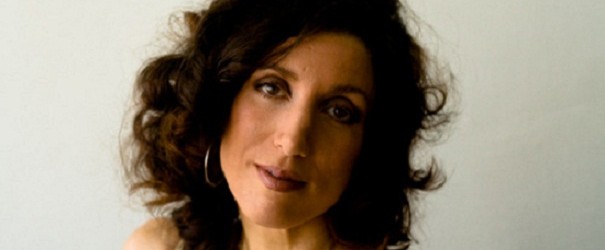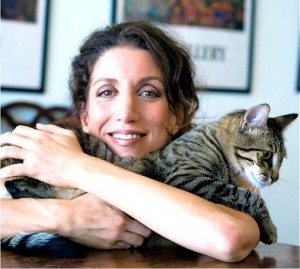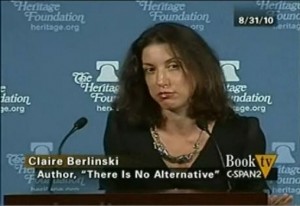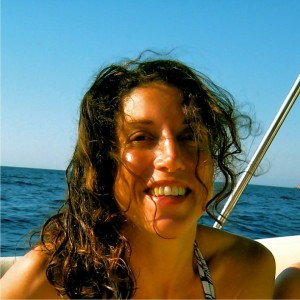UPA: Mrs. Berlinski it is a great honour for UPA family to make an e-interview with a famous author like you. Since there could be some people among our young readers who did not hear about you before, could you please tell us about your career and life?
Claire Berlinski: The honor is all mine, although I must say it makes me laugh to hear myself described as “famous”. I assure you, no one has ever stopped me in the street to ask for my autograph. And I have no doubt that none of your young readers have heard of me.
I was born in 1968 in California, and grew up in New York, Seattle and California. My mother is a cellist; my father is also a writer, as is my brother. I studied modern history and international relations at Oxford University, and have since lived and worked in Britain, Thailand, Laos, France, and Turkey as a journalist, academic and freelance writer.
But the question people always ask me is why I live in Istanbul. I think it’s time to end the mystery and answer the question: How exactly did I wind up in Istanbul with seven cats? Since you have younger readers, they might enjoy this: You can start the story here, and you can continue it here.
How does it end? No idea! David and I split up -you could kind of see that coming- which spoiled the natural dramatic trajectory of the story, but we’re still friends. We’d finish writing the book together if we ever found a publisher. In any event, when we split up, I kept the cats – and the city.
UPA: Mrs. Berlinski, in your widely spoken article “Weimar Istanbul”, you criticized the ongoing legal processes in Turkey made in the name of preventing coups. From your perspective what are the problems in these cases (Balyoz, Ergenekon etc.) and what do you think about Turkey’s democratic transformation?
Claire Berlinski: Actually, I don’t think I mentioned the Balyoz case in that essay – my point in that piece was a bit different. I was trying to illustrate that there is an archetype of a city at a particular moment of social change, and that many cities in history have shared these qualities, among them, contemporary Istanbul. The key paragraph of that piece is here:
There is, it seems, such a phenomenon as a Weimar City. What is a Weimar City? It is a city rich in history and culture, animated by political precariousness and by a recent rupture with the past, vivified by a shocking conflict with mass urbanization and industrialization; a city where sudden liberalization has unleashed the social and political imagination – but where the threat of authoritarian reaction is always in the air.
Weimar Cities are not freaks of nature. They may be expected to arise under certain social, political, and historical circumstances. World War I destroyed both Imperial Germany and the Ottoman Empire. The remnants of both entities succeeded in imposing alien new social orders on themselves, fragile experiments in democracy. The Turkish Republic has lasted far longer than the Weimar Republic, but the stories do not differ in the fundamentals; they have merely been telescoped or expanded by contingent events.
So now you’ve asked me two other questions. First, what do I think about Balyoz and Ergenekon cases? I will start with this: I am not a skeptic -at all- about the so-called Deep State. I believe it existed and exists. The evidence for this is overwhelming. Had these trials focused on bringing the authors of some of the worst of its crimes to justice, I would support them completely.
There are two ways of looking at these trials. In the first, it represents an important step forward for Turkey: At last, say supporters, the government has taken on the occult forces of the Deep State. It is, they say, is analogous to Italy’s Clean Hands operation in the ’90s. No, say detractors. It is nothing of the sort: It is an excuse for the government to arrest and bully the opposition. The way you view this case will to a large extent determine the way you view the AKP and the state of Turkey’s democratic transformation. And while these cases are deeply confusing, some parts of it are easier to understand than most people think.
The evidence assembled by Dani Rodrik, for example, is easy to follow. He’s clearly not impartial. His father-in-law (Çetin Doğan) is on trial. But no amount of family loyalty can make a company that didn’t exist in 2003 exist, retrospectively. What Rodrik is saying is a fact: The Sledgehammer case relies largely upon a document that was supposedly written in 2003. It makes reference to a company that only came into existence in 2008.
This is hardly the only such inconsistency: The key document is full of what he calls “back to the future” anomalies – and he has shown these, very clearly. Everything he argues may be confirmed independently – and I have confirmed it all. I’ve checked every one of his allegations for myself, and what he says is true. Of course, this doesn’t mean that his father-in-law isn’t guilty of something – but whatever it is he’s guilty of, it isn’t proven by the evidence the prosecutors have assembled.
Supporters say that yes, there are a few problems with the case here and there, but this is to be expected, given the volume of evidence and the investigation’s enormous complexity. These anomalies, they say, should not be exaggerated and do not detract from its basic legitimacy.
My view? If it is as important as they say to put these people behind bars, the prosecutors should damned well take more care with their evidence. Allowing the case to rest upon documents that are clearly forgeries cannot possibly lead to what supporters of the investigation say it will – the triumph of the rule of law in Turkey, a sustainable national consensus about these events, and a verdict widely accepted as legitimate. It can only lead to more division, suspicion and paranoia – the last thing, the very last thing, that a bitterly divided Turkey needs.
I’m certainly willing to believe that some of the accused are guilty – perhaps not as charged, but guilty of something. There is plenty of guilt to go around in Turkey. But when brazen forgeries are entered into the evidence, it lends massive credence to the suspicion that the entire case is politically motivated. If any part of it is true, this is all the more reason to be angered that this has happened: It severely undermines faith in any part of the case that might be valid. And supporters of the investigation should be just as angry about this as detractors. I am surprised that they are not.
UPA: Mrs. Berlinski in your popular book “There Is No Alternative: Why Margaret Thatcher Matters”, you analyzed the life and policies of British Premier Margaret Thatcher. What do you think of Thatcherite policies and are there any politicians in Turkey that you resemble to Thatcher?
My book is about the key elements of Thatcherism and the most dramatic moments of her time in power, but it is also a book buttressed by a twofold argument. I hold, first, that Margaret Thatcher’s influence not just on Britain in the 1980s but on the contemporary world is more widespread than commonly recognized. Even among her more sympathetic biographers, there is a tendency to place Thatcher’s extraordinary and unprecedented accomplishments in the context of an endless stream of provincial caveats – her accent was phony (it was); she was unpleasantly moralistic (she was); she was egotistical (she was); she left Britain divided (she did); she destroyed Britain’s coal mining communities (she did); she was a bad mother (who cares). My book argues that the caveats, even if true, are footnotes to the main point: Margaret Thatcher was among the most vigorous and disciplined enemies of socialism the world has known, a woman who permanently changed not only the course of British history but that of all history to a degree rivaled by no other woman, ever, and no other British figure in this century save Churchill.
My second thesis is that she matters now as much as she did during her time in power. Now, because socialism has been buried prematurely. Particularly since the beginning of the Great Recession, we are seeing the return of the ideas she spent her life fighting. Socialism is a secular political movement that like fascism embodies the religious impulse, and is thus an ideology destined to rise again and again from the grave, skeletal claws outstretched and grasping for the instruments and subjects of labor.
Thatcher was animated by a set of distinct beliefs. They were relatively simple: She believed in privatization, popular capitalism, free markets, property-ownership, monetarism, firm control over public expenditure, tax cuts, nationalism, and individualism. She deplored socialism and considered welfare spending and collective bargaining to be forms of it. She particularly despised powerful trade unions. She was leery of international organizations. She saw nothing to admire in the Soviet Union, and not much to admire in any non-British country but America.
Thatcher’s achievements are a great, breathing, living example of anti-socialist ideals in action, applied by sheer and singular force of will and applied to dramatic transformative effect. They function as proof that these ideals may be applied successfully outside of the United States, even in countries with a deeply entrenched socialist tradition. In the global battle between free enterprise and collectivism, no voice today is more compelling than Margaret Thatcher’s own.
I do not see a politician in Turkey whom I would describe as Thatcherite. The AKP likes to describe itself as a “free market” party, but I see very little evidence that they understand and deeply respect the most important foundations of a functional free market economy – individualism, private property rights and rule of law.
UPA: Mrs. Berlinski as a liberal what do you think of criticism towards neo-liberalism? Is there a possibility for humanity to establish a socially just system in a free-market society?
Claire Berlinski: No. Very simply, no. Nor is there a possibility of establishing a socially just system in a planned economy – indeed, there is a near-certainty of establishing a corrupt, impoverished, and deeply unjust society.
The brutal fact of life itself is that it is profoundly unjust and unequal: People are born with vastly different talents, vastly different degrees of ambition, and have vastly different luck. There will never be such a thing as a society that isn’t unfair. That is a Utopian dream – and every effort to create such a Utopia has become, instead, a hell on earth. The historical evidence of this is simply overwhelming.
The virtue of a free economy over a planned one is only that it gives the individual the opportunity freely to make use of his or her luck and talents. It can offer no more than that.
UPA: Mrs. Berlinski, you have previously stated that if the bill for criminalizing the denial of Armenian genocide in France passes, you would go to France and deny the so-called genocide. Mrs. Berlinski from a liberal perspective what do you think of some countries’ efforts to drive Turkey into corner by legislating genocide bills about 1915 events?
Claire Berlinski: They are ridiculous. Either the events of 1915 happened or they didn’t; you cannot change the past by legislating the present. In my opinion, they happened and are properly described as a genocide, using the definition employed in the 1948 United Nations Convention on the Prevention and Punishment of the Crime of Genocide. But nothing could be more revolting to me than an attempt to stifle freedom of expression and debate – and freedom of expression means that everyone has the legal right to express any view, however misguided or offensive. Please note that I’ve also stated my objection to laws in Turkey that criminalize speech, as well.
UPA: Mrs. Berlinski, you have been many times in Turkey. What do you think of Turkish people and Turkish intellectuals?
Claire Berlinski: There are 70 million Turkish people and I haven’t met them all, so I couldn’t possibly say what I think of all Turkish people. I have known and loved many individual Turkish people, but I’ve known and loved them as people, not as Turks. I’ve also met many Turkish people for whom I’ve felt less affection – but I’ve disliked them as people, not as Turks.
My general sense, if you want to force me to stereotype, is that Turks are very lovable: I’ve met many more whom I’ve loved.
I’m not a great fan of Turkey’s so-called intellectual class. I often find that the people in Turkey who have had the most opportunity to study, the most opportunity to read and think -activities that require a certain amount of wealth and privilege- are the ones most willing to lie. I don’t know why this is. But again, I think it is important always to focus on individuals, not groups.
UPA: Mrs. Berlinski could you please name some academicians, journalists and politicians that you follow closely and give importance to their views?
Claire Berlinski: In Turkey or in general? In America, I’m obviously very interested in the vice-presidential selection of Paul Ryan – a brilliant choice. The Ryan pick completely overhauls the national political conversation and injects it with substance. Whatever happens in the race from here on, it will no longer be vapid. Ryan is the real (the only) intellectual leader of the Republican Party. Here’s an article to introduce him to your readers – he’s the one to watch. And here are a few things I’ve written about him.
Journalists? I always read anything Michael Totten writes. I admire his work greatly because I trust him: I don’t believe he misquotes or exaggerates or tries to spin. For Turkish journalists, I’m a fan of Melik Kaylan, although in fact I believe he now lives in New York.
UPA: Mrs. Berlinski thank you for this pleasant interview. We wish you good luck in your works.
Interview: Dr. Ozan ÖRMECİ
12.08.2012





























































